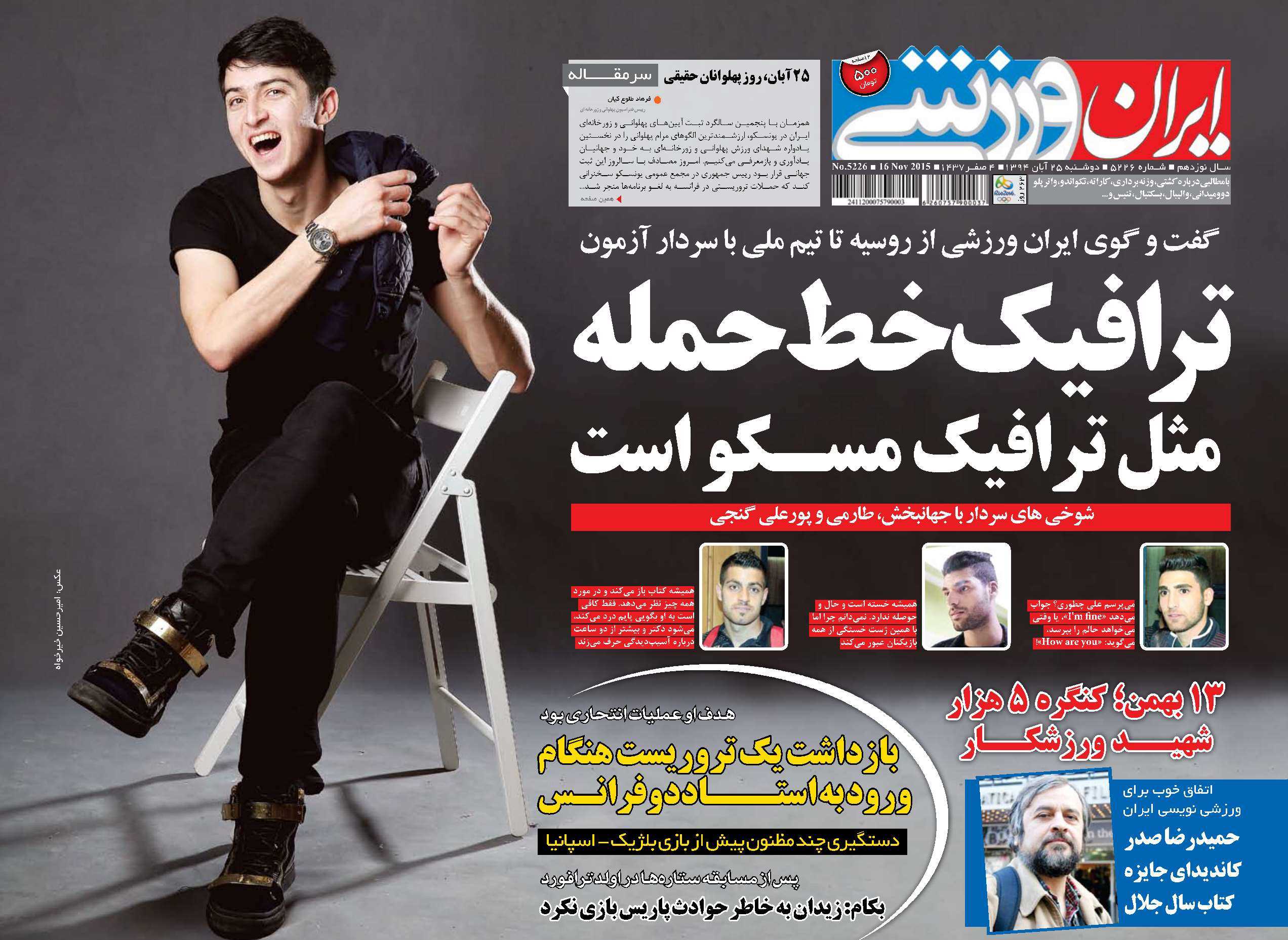|
|
الهام حسینی: تازه از بند مصدومیت رها شدم
بعد از 4 سال، رنگ آرامش را دیدیم
نخستین بانوی مدالآور تاریخ وزنهبرداری ایران در رده سنی بزرگسالان و امید اصلی کاروان وزنهبرداری زنان ایران برای کسب خوشرنگترین مدال در بازیهای همبستگی کشورهای اسلامی در دسته وزنی 81 کیلوگرم، خوشحال است از تغییر و تحولات مدیریتی و فنی که در مجموعه وزنهبرداری ایران رخ داده است. سیدهالهام حسینی با ابراز امیدواری به وضعیت موجود وزنهبرداری، معتقد است با توجه به نگاه ویژه و مثبتی که تیم جدید مدیریتی به وزنهبرداری بانوان دارند، قطعاً میتوان به آینده دختران وزنهبرداری و درخشش آنها در عرصههای مختلف و معتبر پیش رو خصوصاً بازیهای همبستگی در قونیه، همینطور رقابتهای جهانی کلمبیا بیش از پیش امیدوار بود. به همین بهانه و باتوجه به برگزاری نخستین مرحله اردوی آمادهسازی تیم ملی وزنهبرداری در استان و شهر قزوین بعد از تغییر و تحولات مدیریتی برای بانوان، سراغ او رفتیم تا حال و هوای دختران ملیپوش را در این اردو از او جویا شویم. شمشیربازی
پاکدامن ، جلوتر از بقیه
علی پاکدامن در مسابقات قهرمانی جهان به مرحله یک شانزدهم صعود کرد و دو ملیپوش دیگر حذف شدند. در ادامه رقابتهای شمشیربازی قهرمانی جهان و در جدول 64 نفره اسلحه سابر، فتوحی در دیدار با الی درشوئیتز از امریکا شکست خورد و حذف شد. پاکدامن نفر اول سابر ایران مقابل بلانکو فرناندز از ایتالیا قرار گرفت و راهی یک شانزدهم شد. همچنین رهبری 15 بر 10 از حریف مصری شکست خورد و حذف شد. پاراکانو
ویزای کانادا، مانع جاهدی
اسلام جاهدی امسال در حال آمادهسازی برای شرکت در بازیهای پاراآسیایی هانگژو چین و قهرمانی جهان کانادا بود که از این دو رویداد، یکی به تعویق افتاد و برای حضور در دومی هم مشکل ویزا پیش آمد. عضو تیم ملی پاراکانو میگوید: «برای کسب مدال در قهرمانی جهان از فروردین ماه بدون وقفه در اردوی آمادگی بودم و به کسب مدال امید زیادی داشتم اما کانادا ویزا نداد و این شانس از دست رفت.» اکبر فلاح:
این مدل انتخابی را دوست ندارم
قهرمان سابق کشتی جهان باز هم از نحوه برگزاری انتخابی انتقاد کرد. اکبر فلاح در این باره گفت: «دیدید مردم چه ذوقی برای دیدن قهرمانانشان داشتند؟ اینها عاشق کشتی هستند. من این مدل انتخاب را دوست ندارم؛ چه فرآیند باشد و چه چرخه، که فقط یک کشتی برای قهرمانی چون حسن یزدانی برگزار شود. خوب است قهرمان بزرگی مثل یزدانیِ قهرمان با چهار، پنج کشتی به عضویت تیم ملی درآید.» انوشیروانی: خود را باور کنید، سکوی جهانی و المپیک دور از دسترس نیست
بهدنبال مربی خوب خارجی برای دختران وزنهبرداری هستیم
گزارش و خبر
|
|
آدرس مطلب:
آدرس مطلب:
آدرس مطلب:
آدرس مطلب:
آدرس مطلب:
آدرس مطلب:
|































